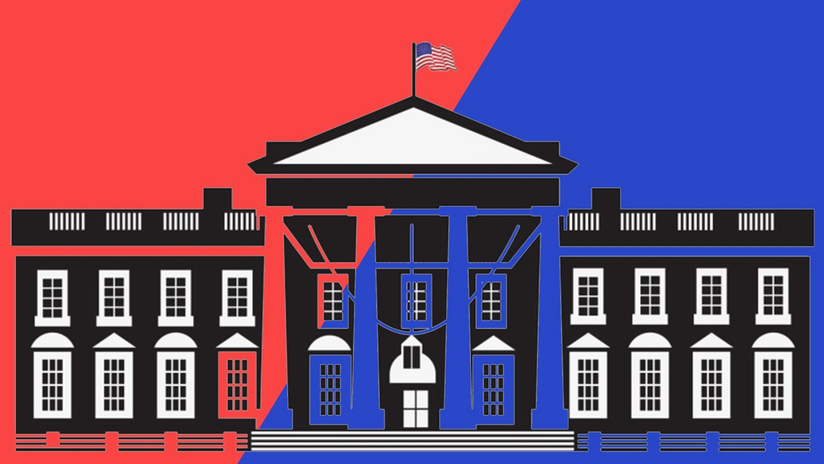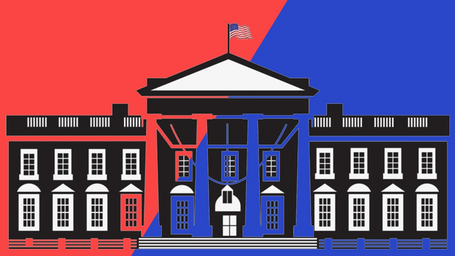For a lot of us, the past year of our lives has felt like the work of an ill-conceived Netflix original. Just when we thought it couldn’t get any worse, it managed to do just that. With a raging pandemic and the alarming effects of climate change breathing down 2020’s neck, it feels like the year was dealt one bad card after another — and the election is no exception. Now, I would like to write in the past tense when I say that the 2020 election has caused severe emotional distress for millions of individuals and families across the country. However, the stress and anxiety this year was not limited to November 3. In fact, we are in our third week following the release of the results, and they are still being contested.
The purpose of this article is not to discuss the candidates. I don’t want to provide my personal views about Trump or Biden. I don’t want to spark conversations about the economy or human rights — all important discussions but not the reason for my writing. I want to talk about an issue that I find particularly pressing and at the root of all our problems: polarization.
No matter who you voted for in this past election, there is no denying that our country is more divided than ever. Our democracy has reached a point in its course where both groups of people view their opponent to be morally bankrupt and unfit to run this country, yet neither group can acknowledge the other’s point of view. I can’t personally say that I am too surprised by this outcome, given that we’ve had the warning signs for years prior. America has always been the country that can’t seem to agree on its most basic rights, whether that be a discussion of the second amendment or healthcare policy. As events and news stories continue to trigger these discussions, our politicians have only capitalized on our divisiveness.

So what exactly is the solution to this issue? Or better phrased: What do Americans perceive the solution to be? To answer this question, I chose to interview two individuals, both moderates for their respective parties. I chose relatively moderate individuals to get the perspective of people who can acknowledge the polarization while maintaining their shared belief that their candidate was the best option presented to us. The following interviews were conducted separately to avoid bias and argument, and the anonymity of both individuals is preserved.
Ok, let’s start with a simple question to kick off this interview. Who did you vote for in the 2020 general election, and why did you choose this candidate?
Democrat (D): I voted for Joe Biden in this election. Simply put, I feel that we as a country are heading towards nationalism. Nationalism is not about country pride. It’s about benefiting one subsect of people: white males. We have also left major alliances, and our current president is not diplomatic. Yes, these reasons don’t have to do with Biden, but Biden is the status quo. Things won’t be fixed automatically, but the status quo before Trump is still better than what we have now.
Republican (R): I voted for Trump in the election. I believe in the overall withdrawing of federal government regulation, instead of increasing it, and this is what President Trump stands for. I also believe in keeping our economy open, and I don’t support hiking taxes on corporations. I appreciate how Trump is stronger against other countries, and I think that the Biden-Ukraine situation is sketchy.
So a lot of your reasoning behind voting for Biden is rooted in why you don’t like Trump. Let’s, for a second, only discuss the economy and foreign policy. I understand that this is an oversimplification and obviously not how you approached the process of choosing your candidate. That being said, what do you have to say to the Republicans that voted for Donald Trump because of his economic and foreign policy?
D: I think a lot of Donald Trump’s “actions” are just extreme rhetoric without any actual follow through. For example, Black employment was on an upward trend before Trump, and that was simply handed to him. Or with something like Proposition 22, money speaks and corporations like Uber, Lyft, and Doordash were able to influence so many minds with their advertisements. It’s a horrible precedent to have corporations influence politics to that extent. Who is reaping the benefits of the economy? I don’t hear low-income families praising Trump.
I would say that there are individuals benefiting from the Trump economy. Granted, it’s not the majority of his constituents, but do you see why having a strong economy would be a priority for many adults?
D: No, I completely agree, and it is something that needs to be discussed. However, Trump brings a set of larger issues that no one should turn a blind eye to.

Let’s for a second only discuss moral issues. I understand the importance of the economy, but what do you have to say to the Democrats that would vote for Biden in an attempt to preserve basic human rights?
R: I think that the moral issues argument that Democrats make just comes across as self-righteous. Like I’m Republican, and yes, I think that racism is bad and rape is bad and everything like that. Democrats have made it out like they are the party against racism and sexism and whatnot, and it’s just not true. Of course there are those who are horrible people, but the majority of people would agree that these things are wrong. I think that Democrats are dividing the parties on issues that shouldn’t be divisive.
While I agree that morality arguments are less effective, and at the end of the day people have pretty much made their minds up on those issues, I would say that Democrats felt the need to play the morality card in this election since our current president’s morals are constantly called into question. Do you see how it may not be self-righteous but just an attempt to appeal to human decency and point out the flaws that they see in Trump?
R: I really don’t think that Trump is as racist as everyone claims. I don’t see the policies that he has made as inherently racist. And I won’t deny that people who are genuine, open racists like to back Trump, which doesn’t help his case whatsoever, but they don’t reflect his actual choices and policies. And he’s had women thriving on his campaign. It’s not that he’s not [racist] at all, I just don’t think that he’s worse than Biden.
Well, do you see your fiscal/social views changing in the future?
D: Honestly, no. I think we have to make sacrifices for the greater good, and taxes suck but they’re important. Frankly, I will say most Democrats don’t seem to talk about fiscal policy a lot, and I am willing to hear conservative stances on fiscal policy. But my goal at the end of the day is not to have policy that’s only good for me, but policy that’s good for the country.
R: I don’t see my social views changing. I’m pretty socially moderate, and I don’t know what would change that.

Now for my last question, I want to hear your thoughts on the way your party is run (the DNC versus the GOP) and your thoughts on the two-party system.
D: The DNC has been missing the point. They aren’t responding to the change the country needs because they’re stuck in this form of “middle-class white democracy.” They fail to read their voters, and the people they are targeting are not their constituents. I understand that they are afraid of risks because they want to avoid another Trump administration, but they need to understand that moderate candidates like Clinton and Biden are not speaking to the public anymore. They’ve conceded that they don’t understand a better alternative, but we need to strive for something better because this compromise isn’t ideal. As far as the two-party system, there are pros and cons. It’s a privilege to know every policy, and not everyone has the time and energy to do this, but at least two-party systems can create baseline policies and spheres that you can align yourself with. That being said, there will always be a lot of polarization, and we’ll never appease everyone.
R: I personally like the way that the GOP is run. The Democratic Party functions a lot more as a unit than the Republican Party does. There are a lot of carbon copy candidates and politicians that all say the same thing. They work for the same exact thing, and they all work together to try to get what they want. That’s why the impeachment went the way that it did. Republicans are more individual because as a whole, the party stands for the rights of the individual instead of grouping people up. The two-party system isn’t great, but I think it’s probably the best option that there is. It’s the most efficient way I can think of at least, but if someone were to present me with a better option, I would definitely love to hear it. It polarizes things for sure, and there are a lot of people voting Republican and Democrat just to vote for the party that they have decided they like more, which I think is problematic.
OK, I think I’ve asked all my questions. Thank you so much for participating. It was nice talking to you!

Following the interviews, I realized just how strong the effects of polarization are. Both individuals understood the other’s argument and acknowledged the way the country is divided, but there was still no sense of what the solution could possibly be. In fact, both people simply prioritized policy that’s important to them and voted to ensure the other guy didn’t win. Even when acknowledging the opposing argument, there was this shared agreement between the two: The benefits of their candidate outweigh the cost, and the cost of their opponent outweigh the benefits. This is what proved to me that the only solution left is to dismantle the two-party system.
Republicans, Democrats, and Independents alike need to acknowledge that neither candidate was even close to the ideal. If we have any desire to accomplish anything in our government, then it starts by bridging the gap in thought. This means giving opportunities to those outside of the current bubbles and allowing the main two parties to choose a more idealistic candidate without risking the loss of an election.
At the end of the day, any system that doesn’t allow the rise of individual thought is a broken system. It’s a system made to push people to the extremes. As a nation, we spend so much time fighting each other on every contentious issue, but we really need to be fighting together for a system that works for us. Now, I will admit that the replacement for our current structure is not clear, and it’s a privilege to even be discussing these polarizing issues with educated individuals. However, if we don’t take steps to address the issue of polarization immediately, our situation will only get worse.
No matter who you supported in this past election and no matter where you fall on the political spectrum, tearing down the two-party system is the next step for all of us.



